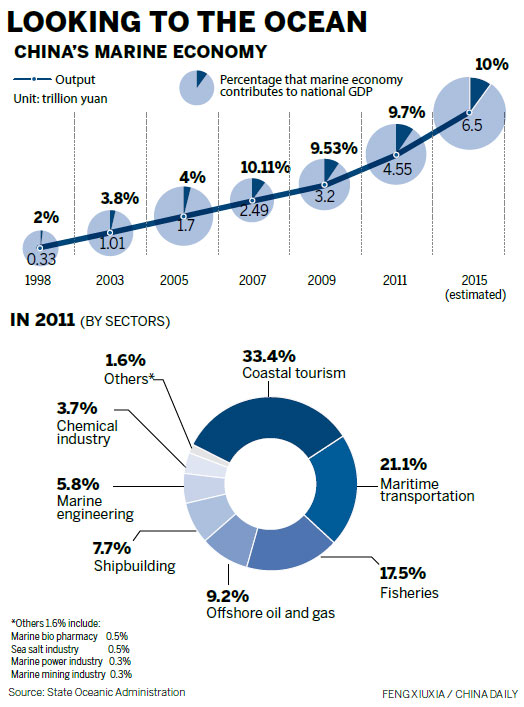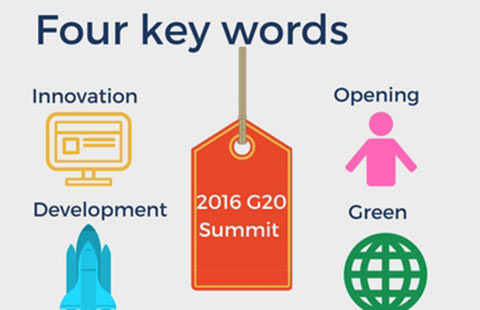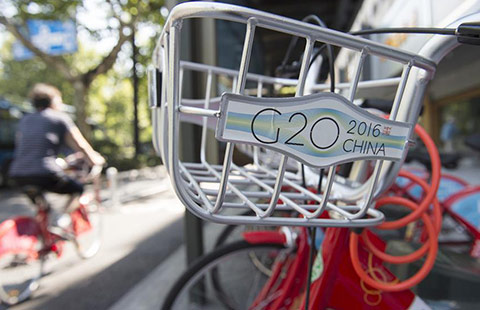Healthy waters
By Zhang Haizhou and Meng Jing (China Daily) Updated: 2013-01-14 09:17Global efforts
China is not the only country with an eye on the ocean, as others are also planning similar moves to find solutions to energy challenges.
In Europe, the agenda for creating growth and jobs in the marine and maritime sectors was adopted in early October by European ministers for maritime policy and the European Commission at a meeting in Limassol, Cyprus.
The member states and the Commission reaffirmed that a dynamic and coordinated approach to maritime affairs will enhance the development of the blue economy and ensure the health of seas and oceans, five years after the launch of the EU Integrated Maritime Policy.
The Limassol Declaration also proposes a marine and maritime agenda to back the Europe 2020 strategy. It focuses on promising marine sectors where there is a great potential for new jobs and growth.
These sectors include marine renewable energy, aquaculture, blue biotechnology, coastal tourism and seabed mining.
"Seas and oceans can play a decisive role in Europe's economic recovery. It is clear that we need to embrace the potential of Europe's blue economy," Jose Manuel Barroso, president of the European Commission, said in an earlier interview.
Maria Damanaki, commissioner responsible for maritime affairs and fisheries in Europe, says that the collective effort of all stakeholders, such as institutions, member states and regions, industry, SMEs and civil society, is necessary to unlock the true gains from the sector.
"Maritime policy is the ideal vehicle to boost the blue economy in Europe," she says.
The blue economy's value in Europe is estimated to be worth 500 billion euros, increasing to about 600 billion euros in 2020. Over the same period, people employed in the blue economy are expected to increase from 5.4 million to 7 million, according to the EU's website.
The European Commission also says that worldwide ocean energy installed capacity may double every year, while the commercialization of wave and tidal technologies will be improved through a reduction in technology costs.
According to estimates, the global annual turnover of marine mineral mining is expected to grow from virtually nothing to 5 billion euros in the next 10 years and up to 10 billion euros by 2030.
Contact the writers at zhanghaizhou@chinadaily.com.cn and mengjing@chinadaily.com.cn
Wang Qian and Xie Yu contributed to this story.

- Hopes high for G20 Hangzhou summit to revitalize world trade
- China's G20 summit chance to revive, reshape world economy: Experts
- Argentine FM lauds China's development policy as 'consistent, coherent, long term'
- Five Water Governance Plan makes a better Hangzhou
- 10 things you should know about G20
- Tencent's shares gain on acquisitions
- Chinese-made train makes debut for short run in Thailand
- Lenders step up issuance of mortgages


















